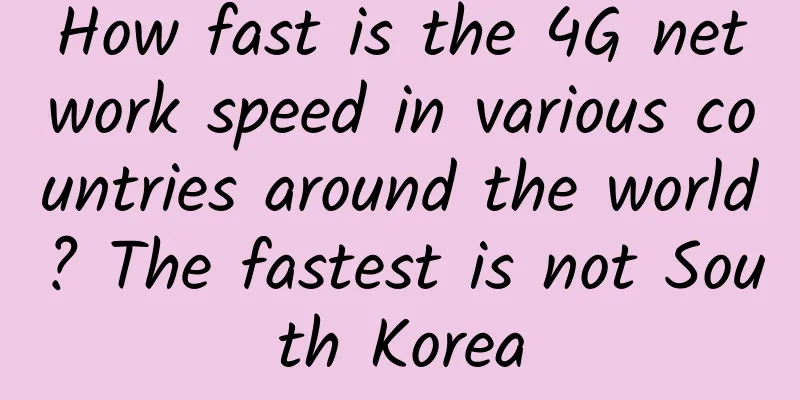Alibaba-Meizu marriage: ambitions and lies in the new ecological era

|
How far are the capabilities of smartphones? Over the past years, this question has been answered by Apple and Google . Around hardware, systems (Android and iOS), and software applications, the two companies have established a complete industrial chain ecosystem covering mobile phone manufacturers, Internet application providers, developers, consumers, etc., and have core voice. It seems that the positions of Apple and Google are unbreakable, but other companies in the above-mentioned industrial chain are not willing to rely on others forever. The opportunities include two aspects. From the perspective of technological development, the standardization and widespread application of Html5 have made it possible for cloud-based Web APPs to replace local applications; from the perspective of industry trends, super APPs with massive user groups have emerged, and the addition of wearable devices, smart homes, and smart cars has broken the balance of the smartphone ecosystem. The situation is complicated, and even Apple and Google have found it difficult to successfully extend their respective tentacles. Yesterday’s capital marriage between Alibaba and Meizu was an excellent interpretation of this. Yun OS’s “Android Shadow” As early as 2011, Alibaba released its own mobile operating system Yun OS, but due to the constraints of the overall industry development environment, it was not satisfactory in terms of user experience, shipments of partner mobile phones, software service capabilities, etc., and the market response was average. After all, users still mainly rely on local mobile phone applications to obtain various life-related services. If you want users to accept the new operating system, you must quickly complete the translation and switching of application service capabilities under the actual situation that the Android and iOS ecosystems are already mature. In other words, you must let countless software developers take the initiative to transplant applications. This is an almost impossible task for a new operating system. For this reason, Alibaba once made Yun OS compatible with Android applications in an attempt to ensure a smooth transition in user experience and usage habits. But this obviously violated Google's interests, and the cooperation between Alibaba and Acer in 2012 ultimately came to nothing. "Nowadays, developing an operating system for smart terminals faces huge competition, especially some unreasonable competition." Alibaba Group CTO Wang Jian's words at a media communication meeting yesterday seemed to be meaningful. According to Wang Jian, there are currently 10 million Yun OS users, but this is still a long way from the scale of establishing a new ecosystem. Wang Jian previously told Tencent Technology that Alibaba can encourage hardware innovation through investment, which will make up for the industry's lack of understanding of the ecosystem. It is understood that in order to facilitate the cooperation between Alibaba and Meizu, Wang Jian went to Zhuhai to meet with Meizu founder Huang Zhang to resolve the dispute between them. Previously, Alibaba and Meizu had formed a strategic partnership covering smartphones and smart homes. However, Wang Jian denied that Alibaba's $590 million investment in Meizu was intended to directly promote Yun OS. In fact, Alibaba and Meizu did not announce the specific details of their cooperation yesterday, but it was nothing more than in-depth cooperation in Yun OS, integration of Alibaba software services, and cooperation in markets such as smart hardware. In addition to direct installation cooperation, investing in Meizu will help Alibaba leverage Meizu's hardware design and system application integration capabilities to deeply develop and optimize the Yun OS experience. Meizu also said yesterday that it will provide support and assistance to Alibaba in the future in terms of the promotion of smartphone systems, customization of hardware and user vision and interaction, market strategy, and offline sales channels. As for Meizu, its shipment volume of about 5 million units in 2014 puts it at a great disadvantage compared to manufacturers such as Apple, Samsung, Lenovo, Xiaomi, and Huawei. The introduction of Alibaba's strategic investment is also to find new growth points. Alibaba said that after investing in Meizu, it will provide Meizu with resources and support in e-commerce, Internet, mobile Internet services, smartphone systems, data analysis and payment in the future. The battle between ecology and openness In 2014, Samsung's profits from smartphones, tablets and other mobile devices in the fourth quarter fell 64% year-on-year. Samsung, which was once at its peak, is now facing the dilemma of continued decline in sales and profits, which shows that the mobile phone hardware market itself is a tough business with no moat and no sense of security. In sharp contrast, no matter how the top ten smartphone rankings change, Google still reaps the benefits, and the service capabilities provided by large and small Internet companies such as Facebook , Tencent, Alibaba, and Baidu continue to expand. It is undeniable that hardware manufacturers have greatly promoted the development of technology and the times, but the future may not belong to hardware. The most direct response to the anxiety of hardware manufacturers is that they all try to create or dominate their own ecosystems. Xiaomi has been operating its own MIUI since its inception, and Samsung also hopes to build its own mobile ecosystem with the Tizen system, but it is difficult for them to get rid of the application ecosystem established by Android. The rise of wearable devices and smart home concepts has found another seemingly more promising development path for mobile phone manufacturers, because this is a new field that even Google and Apple cannot dominate - if their mobile phone hardware and all other smart hardware products of the user are deeply integrated at the bottom layer, it will become the control center of the user's home life and mobile travel, and a new huge ecosystem will be established. BAT companies do not want to be absent from the ecosystem with mobile phones as the control center. There have been recent rumors that Tencent will re-launch the Rom system based on the original Tita, and it has now entered the internal testing stage. In addition, WeChat and QQ are also important chips for Tencent to build an ecosystem; Baidu is also preparing to make a strategic investment in Lenovo's Magic Factory and form an alliance with Gree. Xiaomi has invested in Midea and implanted solutions. In the future, all Midea home appliances can be controlled through Xiaomi mobile phones. Meizu, Haier and Alibaba also quickly announced their cooperation. The lifekit smart platform officially launched by Meizu will also be used to connect the smart devices of partners. Internet commentator Wei Wuhui believes that an important feature of an ecosystem is that a large number of industry chain partners rely on core companies for survival, and that this cannot harm their business model. Alibaba is the first Internet company to build an ecosystem in e-commerce, but it blocked Baidu crawlers very early on because its business model is based on advertising for merchants. If you can search for the desired products through Baidu, then Taobao's business model will collapse. After Alibaba further invested in Meizu, both Alibaba and Meizu hope to extend their reach in emerging markets such as smart homes with the help of each other. Meizu President Bai Yongxiang said in an interview with Tencent Technology and other media yesterday that in addition to continuing to make good products, Meizu wants to expand from the single field of smartphones to the battlefield of the entire ecosystem. "If a product is well made but is eliminated because of the backward ecosystem, this is unjust," Meizu Vice President Li Nan further explained. Interestingly, both Xiaomi and Meizu have claimed that they will maintain open cooperation in the future. However, although both Xiaomi and Meizu have shouted the slogan of openness, it is likely to be in name only and unable to change the rules and regulations of business competition. As a winner of Toutiao's Qingyun Plan and Baijiahao's Bai+ Plan, the 2019 Baidu Digital Author of the Year, the Baijiahao's Most Popular Author in the Technology Field, the 2019 Sogou Technology and Culture Author, and the 2021 Baijiahao Quarterly Influential Creator, he has won many awards, including the 2013 Sohu Best Industry Media Person, the 2015 China New Media Entrepreneurship Competition Beijing Third Place, the 2015 Guangmang Experience Award, the 2015 China New Media Entrepreneurship Competition Finals Third Place, and the 2018 Baidu Dynamic Annual Powerful Celebrity. |
<<: Drones are now popular, how can we develop them into large-scale commercial use?
Recommend
The latest news on the epidemic in Tangshan, Hebei in 2022: Is Tangshan under lockdown? When will the ban be lifted?
Recently, the Omicron variant of the new coronavi...
Your brain works harder than you think to tell you the order of time
In our perception, time is an invisible and intan...
OS X, iOS and Linux all have more vulnerabilities than Windows
The data released by the National Vulnerability D...
Is the cost of Taiyuan Express Mini Program investment high? Taiyuan Express Mini Program Investment Fees and Process
How much does it cost to recruit investors for Ta...
Volvo appoints new R&D president He Ruian, promoted four times in three years
According to foreign media reports, Volvo recentl...
To stand out in the flood of information, you need to add four kinds of ingredients to your content
Content operators hope that the content they prod...
What types of Googlebot are there?
Googlebot is generally called Google robot or Goo...
Mingguang SEO Training: Web crawler crawling strategies that you must know when outsourcing website optimization
With the explosion of Internet information, peopl...
See the strong insertion of AspectJ in Android
What is AOP AOP is the abbreviation of Aspect Ori...
WeChat “Tap”: the greatest common denominator of socializing with acquaintances and strangers
The day before yesterday, the WeChat team announc...
App Delivery Growth: Introduction to Attribution Models and Frameworks
The advertising industry has always had a famous ...
The world's first and only case! Ael subtype blood type discovered in Xiamen, rarer than "panda blood"
recently A man in Xiamen applied for blood typing...
"Film and TV Animation Commentary Copywriting" teaches you how to start writing copywriting from 0 to 1
Training course video content introduction: Tutu ...
Viral communication case analysis: Why did “Watermelon Footprints” go viral on WeChat Moments?
On May 31, the Moments were suddenly flooded with...
Do you have to charge your phone to 100%? This is a big misunderstanding
The reason why most people have to replace their ...









